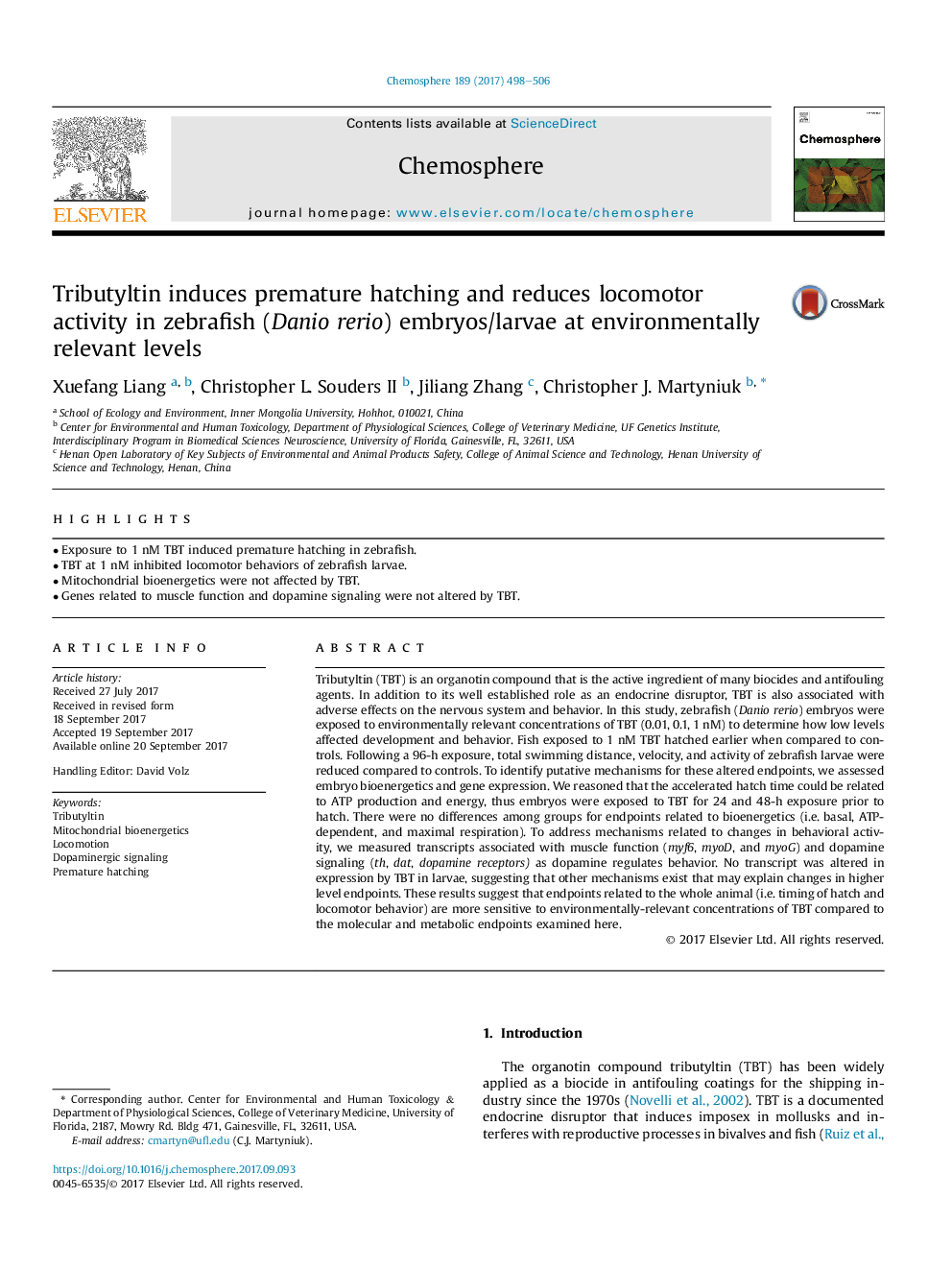| کد مقاله | کد نشریه | سال انتشار | مقاله انگلیسی | نسخه تمام متن |
|---|---|---|---|---|
| 5745890 | 1618782 | 2017 | 9 صفحه PDF | دانلود رایگان |

- Exposure to 1Â nM TBT induced premature hatching in zebrafish.
- TBT at 1Â nM inhibited locomotor behaviors of zebrafish larvae.
- Mitochondrial bioenergetics were not affected by TBT.
- Genes related to muscle function and dopamine signaling were not altered by TBT.
Tributyltin (TBT) is an organotin compound that is the active ingredient of many biocides and antifouling agents. In addition to its well established role as an endocrine disruptor, TBT is also associated with adverse effects on the nervous system and behavior. In this study, zebrafish (Danio rerio) embryos were exposed to environmentally relevant concentrations of TBT (0.01, 0.1, 1Â nM) to determine how low levels affected development and behavior. Fish exposed to 1Â nM TBT hatched earlier when compared to controls. Following a 96-h exposure, total swimming distance, velocity, and activity of zebrafish larvae were reduced compared to controls. To identify putative mechanisms for these altered endpoints, we assessed embryo bioenergetics and gene expression. We reasoned that the accelerated hatch time could be related to ATP production and energy, thus embryos were exposed to TBT for 24 and 48-h exposure prior to hatch. There were no differences among groups for endpoints related to bioenergetics (i.e. basal, ATP-dependent, and maximal respiration). To address mechanisms related to changes in behavioral activity, we measured transcripts associated with muscle function (myf6, myoD, and myoG) and dopamine signaling (th, dat, dopamine receptors) as dopamine regulates behavior. No transcript was altered in expression by TBT in larvae, suggesting that other mechanisms exist that may explain changes in higher level endpoints. These results suggest that endpoints related to the whole animal (i.e. timing of hatch and locomotor behavior) are more sensitive to environmentally-relevant concentrations of TBT compared to the molecular and metabolic endpoints examined here.
Journal: Chemosphere - Volume 189, December 2017, Pages 498-506